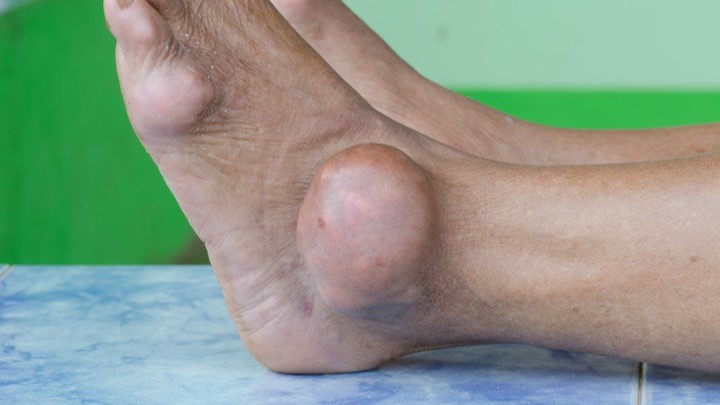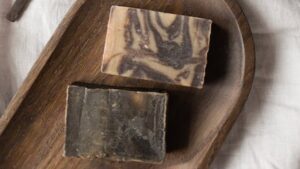Are you tired of the unbearable pain and inflammation that gout brings? If you’re seeking relief from this debilitating form of arthritis, you’re not alone. Gout affects millions of people worldwide, causing sudden and intense joint pain, particularly in the big toe.
While medical treatments are available, many individuals are turning to natural remedies to complement their gout management routine. We also published viral content about leg ulcers.
In this article, we will explore a range of natural remedies for gout relief that can help alleviate joint pain, reduce inflammation, and promote overall joint health.
Before delving into natural remedies, let’s better understand gout itself.
What is Gout?
Gout is a type of arthritis caused by the buildup of uric acid crystals in the joints. It primarily affects the big toe but can also impact other joints in the body. The symptoms of gout include severe pain, swelling, tenderness, and redness in the affected area. Mayo Clinic has a further explanation.
Causes of Gout
Gout is mainly caused by an excessive accumulation of uric acid in the body. This can occur due to various factors, such as an overproduction of uric acid, impaired excretion by the kidneys, or a combination of both. Certain risk factors, including a family history of gout, obesity, alcohol consumption, and certain medications, can increase the likelihood of developing gout.
Natural Remedies for Gout Relief
1. Dietary Modifications
a. Importance of a Healthy Diet
Maintaining a healthy diet is crucial for managing gout symptoms and reducing the frequency of flare-ups. A well-balanced diet can help control uric acid levels and promote overall joint health. It is important to consume a variety of nutrient-rich foods and limit the intake of certain items.
b. Foods to Avoid
Certain foods have high purine content, which can increase uric acid levels in the body. Individuals with gout should avoid or limit the consumption of the following foods:
- Organ meats (liver, kidney, etc.)
- Shellfish
- Red meat
- Alcohol, particularly beer
- Sugary beverages
- High-fructose corn syrup
c. Foods to Include
On the other hand, incorporating certain foods into your diet can help lower uric acid levels and alleviate gout symptoms. The following foods are beneficial for individuals with gout:
- Low-fat dairy products
- Cherries
- Berries
- Leafy green vegetables
- Nuts and seeds
- Whole grains
- Healthy fats (olive oil, avocados, etc.)
2. Hydration and Fluid Intake
Ensuring adequate water intake to promote the dilution and excretion of uric acid from the body. Staying hydrated helps prevent the formation of uric acid crystals and reduces the risk of gout attacks.
a. The Role of Hydration
Proper hydration plays a vital role in gout management. It helps dilute uric acid and supports its excretion from the body. Drinking an adequate amount of water throughout the day can help prevent uric acid crystals from forming and reduce the risk of gout attacks.
b. Recommended Fluid Intake
The recommended fluid intake for individuals with gout is around 8 to 16 cups (64 to 128 ounces) per day. This can vary depending on factors such as climate, physical activity levels, and individual health conditions. It is essential to spread fluid intake evenly throughout the day and include water, herbal teas, and low-sugar fruit juices.
3. Weight Management
Maintaining a healthy body weight reduces the strain on joints affected by gout. Losing weight can help lower uric acid levels and improve overall joint health.
a. The Link Between Weight and Gout
Maintaining a healthy weight is crucial for individuals with gout. Excess weight can contribute to higher uric acid levels and increase the risk of gout attacks. Losing weight can help reduce the frequency and severity of flare-ups and improve overall joint health.
b. Effective Weight Management Strategies
To manage weight effectively, individuals with gout can incorporate the following strategies:
- Following a balanced and calorie-controlled diet
- Engaging in regular physical activity
- Seeking support from healthcare professionals or weight management programs
4. Herbal Remedies
Utilizing natural substances derived from plants to alleviate gout symptoms. Herbal remedies often have anti-inflammatory properties that can help reduce pain and inflammation associated with gout.
a. Cherry Extract
Cherry extract is a popular natural remedy for gout due to its anti-inflammatory properties. Consuming cherry extract or cherries themselves may help reduce gout symptoms and decrease the frequency of flare-ups.
b. Turmeric
Turmeric contains curcumin, a compound known for its anti-inflammatory effects. Incorporating turmeric into your diet or taking curcumin supplements may provide relief from gout symptoms.
c. Ginger
Ginger possesses anti-inflammatory properties and may help alleviate gout pain and inflammation. Adding ginger to meals, consuming ginger tea, or taking ginger supplements can be beneficial for individuals with gout.
5. Supplements
Additional nutritional components are taken in the form of pills, capsules, or powders to complement a regular diet. Supplements commonly used for gout management include vitamin C, fish oil, and bromelain, which can help reduce inflammation and support joint health.
a. Vitamin C
Vitamin C has been associated with lower uric acid levels in the body. Consuming foods rich in vitamin C or taking supplements may help prevent gout attacks and reduce inflammation. Check how Vitamin D can be used to boost the immune system.
b. Fish Oil
Fish oil supplements contain omega-3 fatty acids, which have anti-inflammatory properties. Taking fish oil supplements regularly may help manage gout symptoms and support joint health.
c. Bromelain
Bromelain, an enzyme found in pineapples, exhibits anti-inflammatory properties. Taking bromelain supplements may help reduce gout-related inflammation and provide relief from pain.
6. Physical Activity and Exercise
Engaging in regular physical activities and exercises to strengthen muscles, improve joint flexibility, and support overall joint health. Low-impact exercises are often recommended for individuals with gout to minimize stress on the joints.
a. Benefits of Exercise for Gout
Regular physical activity and exercise can have numerous benefits for individuals with gout. It can help maintain a healthy weight, improve joint flexibility and strength, and reduce the frequency of gout attacks.
b. Low-Impact Activities
Low-impact exercises are particularly suitable for individuals with gout as they minimize stress on the joints. Some examples include walking, swimming, cycling, yoga, and tai chi. It is important to start slowly and gradually increase the intensity and duration of the exercises.
7. Stress Reduction
Implementing techniques and practices to manage and reduce stress levels high stressless levels can trigger gout attacks and worsen symptoms. Stress reduction techniques may include mindfulness meditation, deep breathing exercises, and engaging in relaxing activities.
a. Understanding the Impact of Stress
Stress can trigger gout attacks and worsen symptoms in individuals with this conditHigh stresstress levels can lead to hormonal changes that affect uric acid levels. Therefore, managing stress is crucial for maintaining gout control.
b. Stress Reduction Techniques
Incorporating stress reduction techniques into your daily routine can be beneficial for managing gout. Some effective techniques include:
- Practicing mindfulness meditation
- Engaging in deep breathing exercises
- Engaging in hobbies or activities that promote relaxation
- Seeking support from friends, family, or support groups
FAQs
1 Can natural remedies completely cure gout?
While natural remedies can help manage gout symptoms, they may not provide a complete cure. It is important to work with healthcare professionals to develop a comprehensive treatment plan.
2 Are there any side effects associated with herbal remedies?
Herbal remedies may have side effects or interact with certain medications. It is crucial to consult with a healthcare professional before incorporating herbal remedies into your gout management plan.
3 How long does it take for natural remedies to show results?
The effectiveness of natural remedies may vary from person to person. It may take several weeks or months to observe significant improvements in gout symptoms.
4 Can exercise worsen gout symptoms?
Engaging in appropriate exercises and low-impact activities lly improve gout symptoms. However, it is important to consult with a healthcare professional to determine the most suitable exercise plan for your specific condition.
5 Is stress management important for gout?
Yes, stress management is crucial for individuals with gout high stress levels that can trigger gout attacks and worsen symptoms. Incorporating stress reduction techniques into your daily routine can significantly benefit gout management.
In Conclusion
Gout can be managed through a holistic approach that includes natural remedies alongside medical treatments. Dietary modifications, hydration, weight management, herbal remedies, supplements, physical activity, and stress reduction techniques all play a significant role in alleviating gout symptoms and promoting overall joint health.
It is essential to consult with a healthcare professional before making any significant changes to your treatment plan. We recommend that you read about these natural remedies for headaches.



